Time’s up: Threats won’t prevent US ouster from Iraq after years of occupation
By Wesam Bahrani
All eyes in Iraq are glued to the negotiations taking place at the moment between American officials and the government of Mohammad Shia' al-Sudani, aimed at ending the years-long military occupation.
The climate of these talks is believed to be tense. A source familiar with the latest security developments in the Arab country said the Iraqi resistance has threatened to shut down the US embassy in Baghdad, which has long been accused of acting as a US military base instead of a diplomatic mission.
This would also see all Western embassies affiliated with the US-led military coalition getting closed if the American occupation rejects popular and growing calls to withdraw from Iraq, the source noted.
The Iraqi government can also expect threats from Washington during the meetings. With the revenue of Iraqi oil sales heading to the US Treasury in a very unfair measure, Washington can threaten to impose sanctions that could weaken the Iraqi Dinar.
This sinister ploy would be aimed at downgrading the living standards of Iraqi families in a bid to turn the people against their government and the resistance. They may both (as Washington would hope) be blamed for any damage to the country’s economy, despite the US pulling the strings.
The Iraqi resistance is seeking a clear timeline from the government for the expulsion of US forces and is not willing to settle for anything less, including vague assurances of withdrawal dates.
How the resistance will execute its threat against the US embassy is unclear, but it appears that America has already decided to withdraw from the country. The only question is when and how.
Washington is aware that its military presence in Iraq is deeply unpopular. This was evident when the White House held back from ordering strikes against the resistance, which had attacked US bases in Iraq and Syria around 200 times since the genocidal Israeli war on Gaza began on October 7, 2023.
But after the recent deadly US strikes on the Iraqi-Syrian border followed by the assassination of the Iraqi military commander Abu Baqr al-Sa'adi in the capital Baghdad, all the indications suggest that nothing will return to normal for the US occupation even if the Israeli-American war on Gaza ends.
Al-Sa'adi was a highly respected commander within the Popular Mobilization Units (PMU), also known as Hashd al-Shaabi, whose factions have been integrated into the national armed forces.
The PMU's Chief of Staff, Abu Fadek, asserted that "avenging the martyrdom of Abu Baqir al-Sa'adi is the removal of all foreign forces” and that the resistance “will not accept anything less than this."
Abu Fadek did not go into specifics on how the US occupation will be removed; only saying the PMU will coordinate with "all relevant Iraqi parties," including the government.
The PMU, which was established in 2014, needs the green light from the Iraqi government to wage military operations against the US occupation.
The Iraqi resistance was established in late 2003 to resist the US invasion. Many of its factions later joined the PMU in its fight against Daesh and, in turn, got involved in the country’s political system.
The resistance has also warned that the US seeks to return Daesh terrorism to Iraq should its troops leave the country for a second time, and this assertion does not look far-fetched.
It was no coincidence that when the Iraqi resistance kicked out the US occupation in late 2011, the Arab Spring turned into a terrorist Autumn that saw the US creation of Daesh (by the admission of American officials themselves), and allowed the US military to slip back into Iraq through the backdoor.
The resistance has been waging drone and missile operations on US bases in Iraq and Syria in solidarity with Gaza and to end the Israeli regime's partner in crime, the American occupation, without government coordination.
That does not make its military measures illegitimate as it has the legal authority to resist an occupying entity. The resistance cooperates with government officials in the field of security. Deep down, the government knows it won't be sitting in Baghdad today without the sacrifices of the resistance.
In the vast number of battles against terrorism, it has handed over many terrorists to the relevant government authorities to face trial. A large proportion of terrorists in Iraqi jails today were captured by the resistance, so the country owes its security to the resistance.
It has also acted independently during its operations against the US occupation, which have surged under the banner of the Islamic Resistance in Iraq, following the genocidal Israeli war on Gaza.
Nevertheless, the recent deadly US bombings in Iraq have violated all the rules of engagement and agreements with Baghdad and the so-called US-led military coalition could see the potential entry of the PMU in the fight against the American occupation, should it not depart after the current negotiations between Iraqi and US officials.
It won't be surprising to see a suspension of attacks by the resistance against American bases in the lead-up to a US withdrawal from the country.
This is what happened in 2011 when Washington requested third parties to plead with the resistance for a two-month pause in attacks against US forces so that President Barack Obama could paint a picture back home that American troops are not leaving under fire.
The two leading factions of the Iraqi resistance today, Kataib Sayyed al-Shuhada (KSS) and Harakat al-Nujaba operate - like all other Iraqi resistance forces - independently of any third party, contrary to US claims that these factions receive support or orders from Iran.
The Secretary-General of KSS, Abu Ala'a al-Walai, fought the former Iraqi Ba'athist regime of Saddam Hussein, the first US occupation, and more recently Daesh terrorists and the second US occupation.
The senior Iraqi resistance official was imprisoned by Saddam's West-backed regime for ten years and the US occupation for three years.
“We were grateful for Iran's support toward the resistance in the past, in particular against Daesh terrorists. Today we have our own opinions and make our own decisions. These repeated questions that 'we fight on behalf of Iran' or 'take orders from Iran' have become irritating,” he said.
Iran has repeatedly stressed that these resistance movements in the region act on their own accord.
The reality is that the Iraqi resistance has gained significant experience on the battlefield and much of the credit for that goes to the late Haj Radwan (Imad Mughniyah), a senior commander with Lebanon’s Hezbollah who was assassinated by a joint Israeli-American operation in February 2008.
The experience of the Lebanese guerilla-style resistance that ended the Israeli army's occupation of Lebanon in 2000 suited the Iraqi resistance in its operations against the US army's first occupation of the country from 2003 until 2011.
Furthermore, in all the US airstrikes against the arms depots of the resistance, there were never any Iranian weapons, such as short-range missiles that have been hitting US bases recently, found in the caches.
The irony is that Washington itself is fully aware of this, but has repeatedly branded the Iraqi resistance as "Iranian-backed" – repeating this hollow rhetoric many times since October 7.
The Americans argue their presence in Iraq has seen a transition from a combat mission to an "advisory" role. But there is nothing "advisory" about bombing the country dozens of times and killing its soldiers.
That was evident by America's deadly combat mission in the country.
As the Secretary-General of Harak al-Nujaba, Sheikh Akram al-Kaabi said "The end of the resistance operations depends on Gaza and the US withdrawal from Iraq."
One of the stumbling blocks to the US withdrawal from Iraq is some Sunni and Israeli-backed Kurdish parties that have shown little desire for the end of the occupation.
This was evident during the parliament session that was held to discuss the occupation in the aftermath of the US assassination of al-Sa'adi.
Sunni and Kurdish members were notably not in attendance at the session, which passed a bill for the parliamentary defense and security committees to review the violations of the occupation.
It appears that some Kurdish parties are complicit in the destabilization of their own country by inviting the Israeli Mossad to operate from the northern regions they control.
But many factions of Iraqi society, including its people from all faiths and backgrounds, the majority of its parliament, presidency and government have publicly voiced their rejection of the US occupation and are calling for the swift withdrawal of its military.
The government meetings with the US can see this task accomplished. America pretty much knows its time in Iraq has come to an end unless it seeks a major escalation.
As Iraq approaches the 21st anniversary of the US invasion that left a lasting imprint on its security infrastructure, the journey towards self-sufficiency has been a challenging one for the country, with persistent obstacles hindering its ability to stand firmly on its own feet.
Behind all of these setbacks that Iraq has suffered is the US.
The challenges that have faced the country are multifaceted. The deadly American occupation from 2003 until 2011 was intertwined with al-Qaeda in Iraq (AQI), which saw terrorist attacks killing dozens, if not hundreds, of civilians on an almost daily basis.
Not a single market in Baghdad was spared. At one point, 24 terrorist bombings took place in one day.
This was followed by the brutal Daesh terrorism that marked another dark chapter in the country’s history and then came the second wave of a very sinister and trouble-making US occupation in 2014.
It all proves that consecutive governments were incapable of providing stability, the government of Haider al-Abadi's agreement to allow the Americans back in 2014, was strongly opposed by the resistance and the government of al-Sudani is now regretting that decision.
Iraq stands at a crossroads, grappling with the legacies of the past while striving for a more secure and stable future. The journey ahead is undoubtedly challenging, but the strength of the resistance remains a beacon of hope to prevent the country from prospering.
The incumbent government has declared that the PMU and other Iraqi armed forces are capable of securing the country's sovereignty and territorial integrity, and acknowledges that a destabilizing US occupation, which violates Iraqi skies every day, is standing in the way.
Iraq needs resistance until it is capable of providing security to its people and sovereignty for the country. Baghdad needs to purchase anti-air defense systems that can secure its skies from intruding aircraft. It needs a stronger army to secure its borders.
The PMU is doing an effective job on the Syrian border despite being bombed by the US. But all of the borders need to be protected. This will help bring security to the country and the wider region.
Wesam Bahrani is an Iraqi journalist and commentator.
(The views expressed in this article do not necessarily reflect those of Press TV.
VIDEO | Tehran court holds 27th hearing on MKO terrorist group charges
Twenty-two US states sue over Trump's birthright citizenship order
VIDEO | Freedom at last: Shatha Jarabaa’s journey home
VIDEO | Press TV's news headlines
Official: Hamas will defeat Israel in West Bank
VIDEO | Ceasefire at last: Will it hold?
VIDEO | Stirring security situation
4 Israeli settlers injured in resistance stabbing operation in Tel Aviv


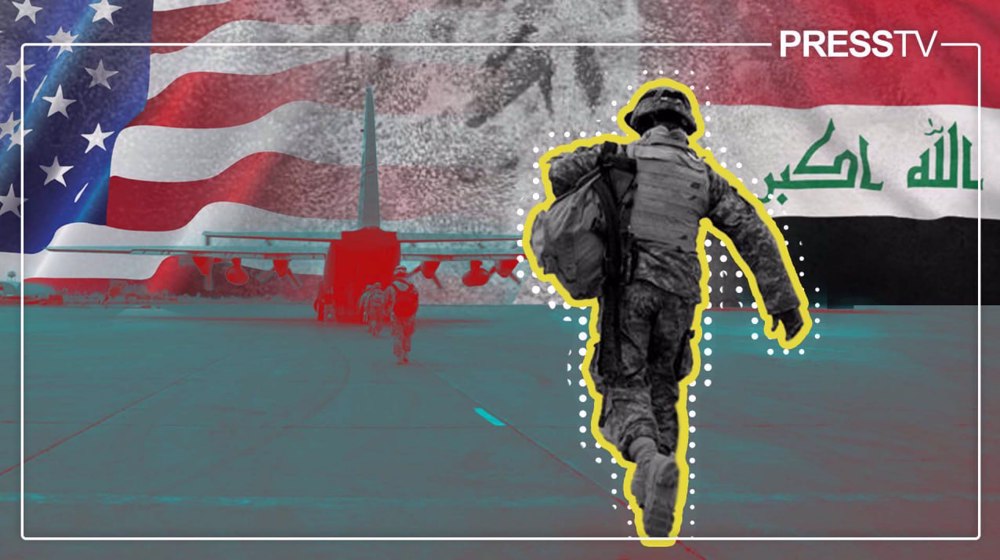
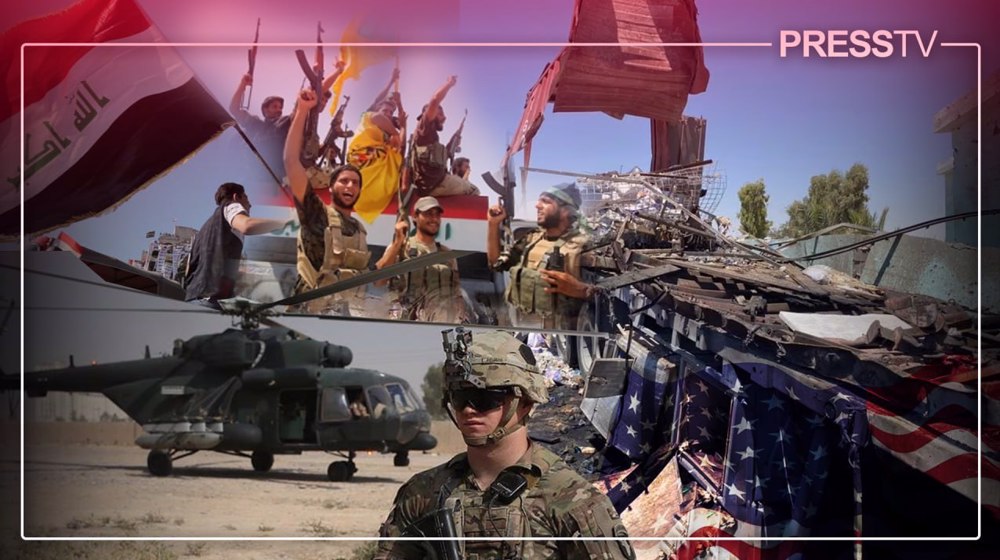
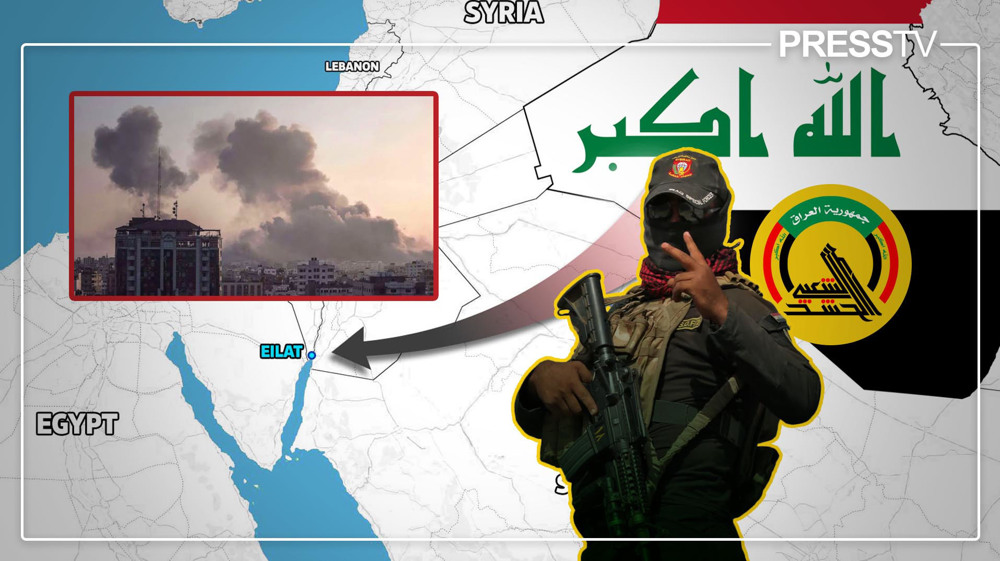
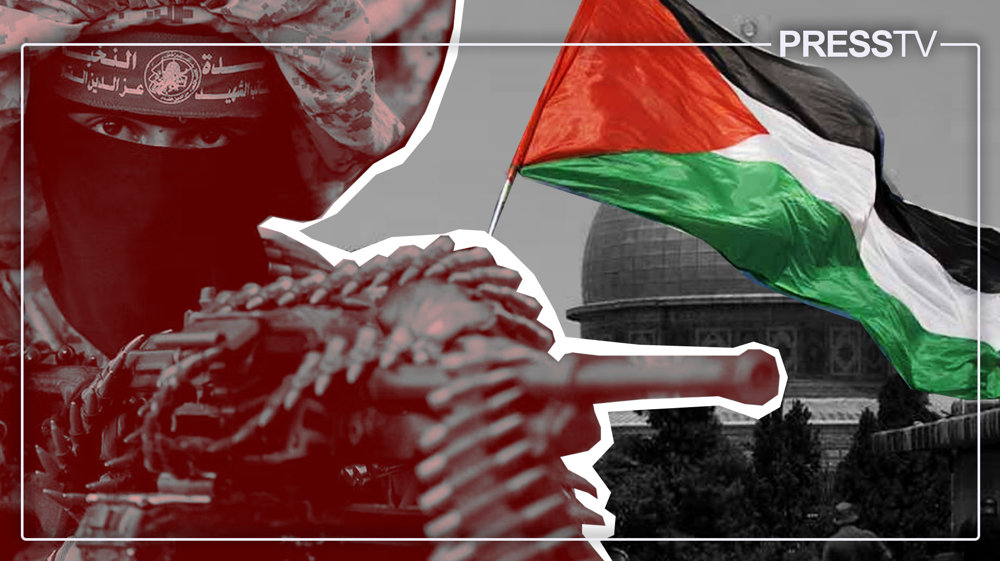
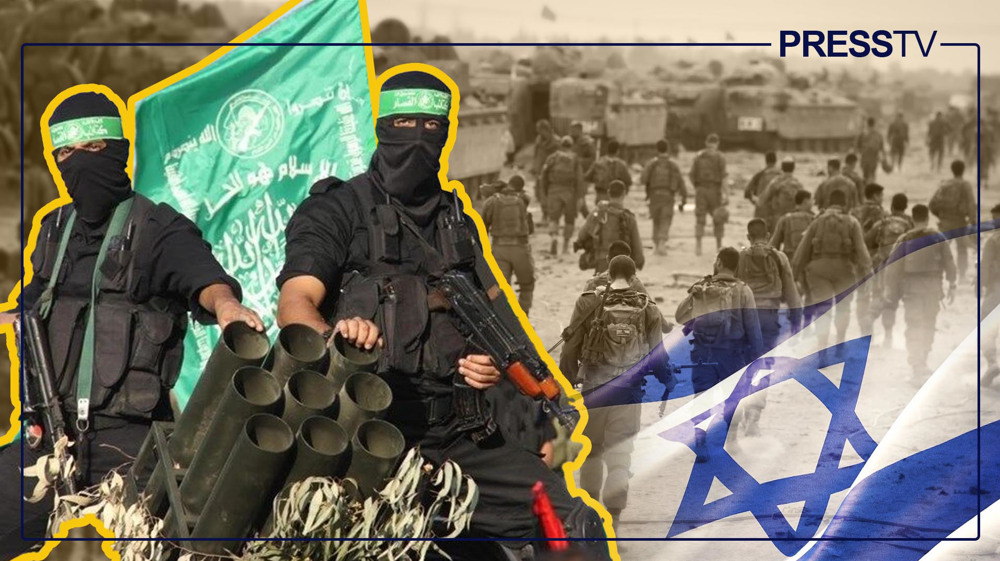
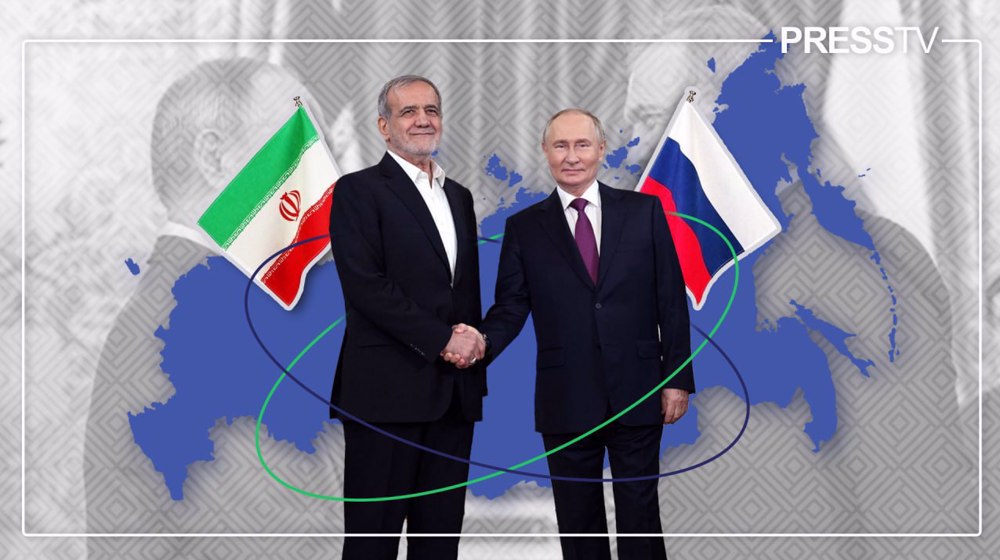



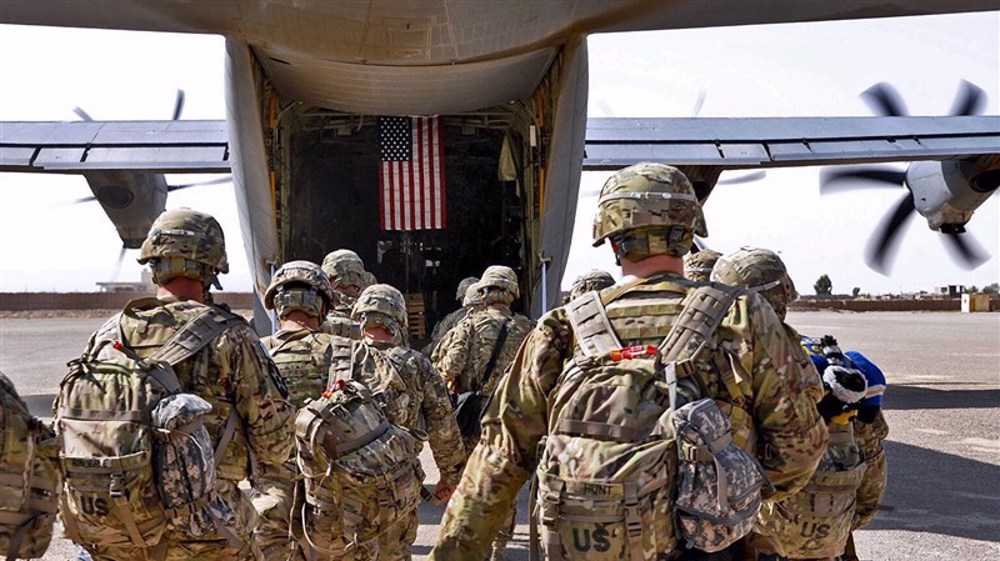
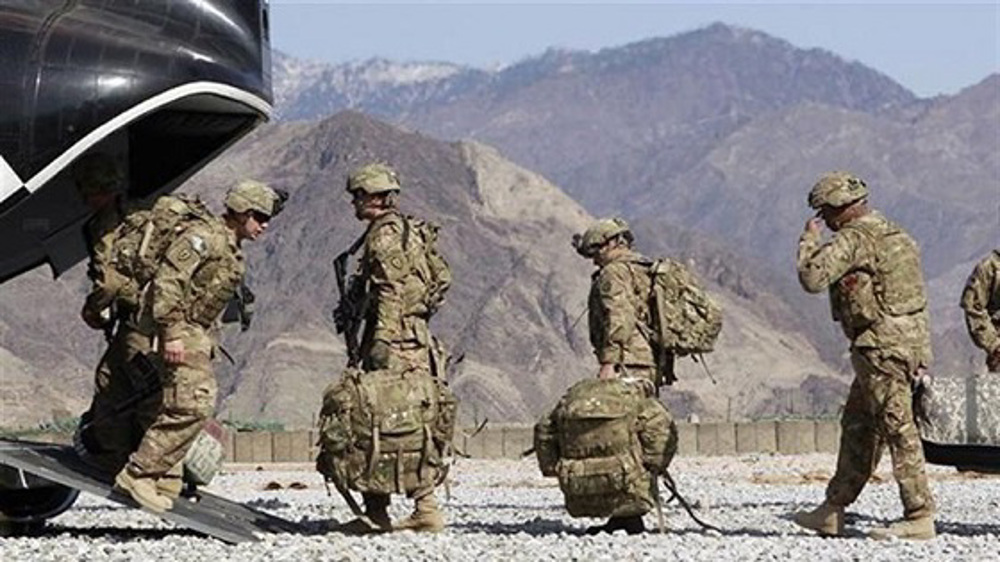
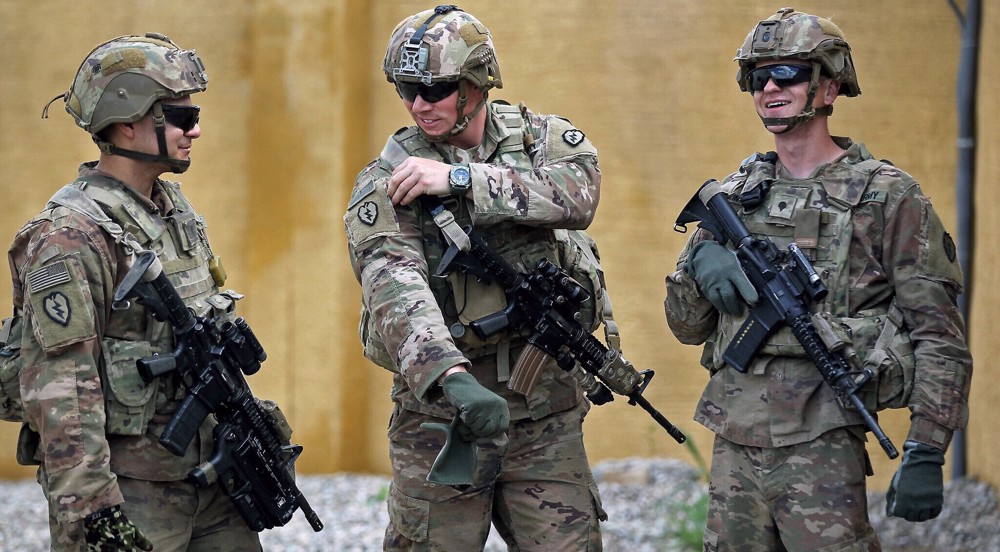
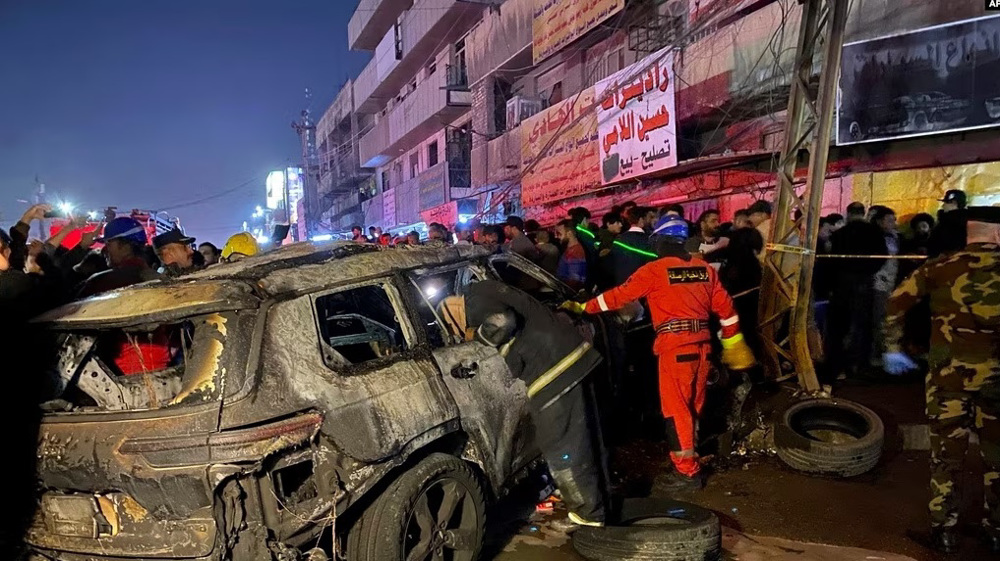
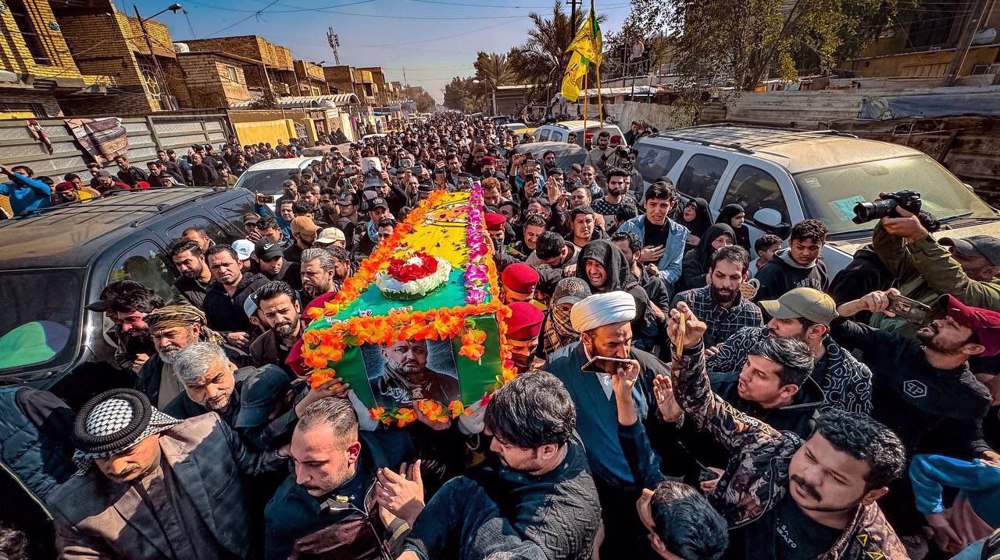

 This makes it easy to access the Press TV website
This makes it easy to access the Press TV website